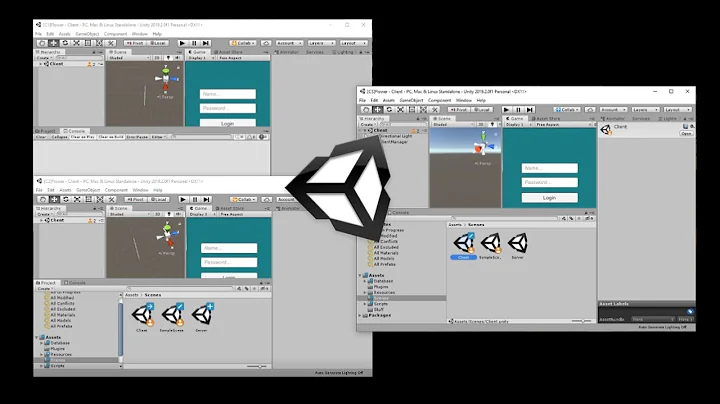Getting unity to resolve multiple instances of the same type
In Unity there can only be one default registration (A registration without a name as in container.RegisterType<IFoo, Foo1>();
). If multiple default registrations are performed, the last one wins.
In order to register multiple implementation for the same interface, you need to assign names to those registrations:
container.RegisterType<IFoo, Foo1>("registration1");
container.RegisterType<IFoo, Foo2>("registration2");
Also, Unity only understand arrays by default. If you want to resolve as an array then you will be fine with the default behaviour. Otherwise you will need to register a mapping between the array and the collection you are interested in, like:
container.RegisterType<IEnumerable<IFoo>, IFoo[]>();
Another important note is that the default registration won't be returned when resolving a collection. For example given:
container.RegisterType<IFoo, Foo1>();
container.RegisterType<IFoo, Foo2>("registration1");
container.RegisterType<IFoo, Foo3>("registration2");
container.RegisterType<IEnumerable<IFoo>, IFoo[]>();
If you resolve IEnumerable<IFoo>, the result will only contain instances of Foo2 and Foo3, but there will not be an instance of Foo1 because the default registration is not included.
Related videos on Youtube
Comments
-
S. Hebert about 2 years
I want to do a simple resolve of multiple type registrations (ultimately constructor injected, but using .Resolve to see if Unity is even capable of such things.
In every case below, Unity resolves 0 items where it should be resolving 2.
Is there some switch in unity that turns on post-2007 behavior? Or am I just drastically missing something?
Here is my code:
public interface IFoo {} public class Foo1 : IFoo{} public class Foo2 : IFoo{} class Program { static void Main(string[] args) { var container = new UnityContainer(); container.RegisterType<IFoo, Foo1>(); container.RegisterType<IFoo, Foo2>(); // container.Resolve<IEnumerable<IFoo>>(); returns 0 // container.ResolveAll<IFoo>(); returns 0 var foos = container.Resolve<IFoo[]>(); Console.WriteLine(foos.Count()); Console.ReadLine(); } } -
Narayana over 10 yearsIn an MVC app, is it ok to do
var container = new UnityContainer();andcontainer.Resolve()wherever I want it? Or is there a better way to do it? -
 Daniel J.G. over 10 years@Narayana You should leave that to a single place in your application known as the composition root. In MVC you usually have some kind of bootstrapper that creates the container and use it with a custom
Daniel J.G. over 10 years@Narayana You should leave that to a single place in your application known as the composition root. In MVC you usually have some kind of bootstrapper that creates the container and use it with a customDependencyResolverorControllerFactory. The rest of your code should just declare its dependencies via constructor/dependency injection. Take a look at this article. -
 granadaCoder about 7 yearsdoesn't bring back the default registration, that is tad weird imho. live and learn.
granadaCoder about 7 yearsdoesn't bring back the default registration, that is tad weird imho. live and learn.










